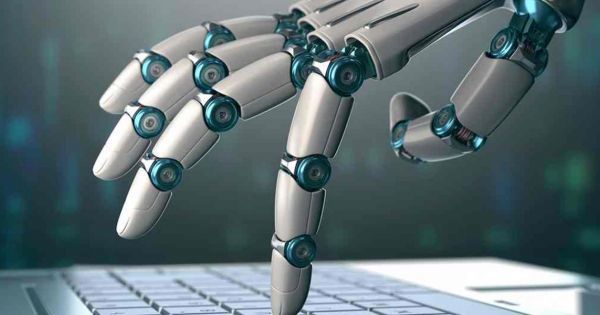The idea of a world government has been a hot topic in the U.S. elections and throughout history.




Food is one of life’s absolute necessities and one that people take great pleasure from, so it’s no surprise that the future of food is one of those topics that always draws significant interest. So what will we be tucking into in the year 2036? A plate of bugs with a side order of seaweed? A glass of milky liquid? Cajun Swedish fusion cuisine? Or will it be a world of shortages where we munch on government issue Soylent Green and try not to think about where it came from? Take your places at table and join us as we take a look at what mealtimes in the future might look like.

“A radical review of cybersecurity in space is needed to avoid potentially catastrophic attacks.”

Tough times lay ahead for human workers. With the advent of automation comes a much smaller job market and an ever-shrinking work force. Jobs traditionally held by humans are now being taken over by robots and computer software. Now, another job sector is being threatened by automation: the public sector.
A study conducted by Oxford University and Deloitte, a business advisory firm, found that 850,000 public sector jobs in the UK are at risk of being lost by 2030 due to automation. The report also mentions how more than 1.3 million administrative jobs in the public sector have a 77% probability of being automated. These jobs include highly repetitive jobs like clerical work and transportation work.
–This report comes as good news to fiscal policy makers who wish to cut costs. It shows the government can save up to £12 billion in public sector wages by 2030.

The decline of birth rate is causing a switch in society between younger workforce and the elderly. The Silver Tsunami is a real issue and one that rejuvenation biotechnology can potentially solve.
Data show productive population age group becoming smaller than the majority, and inadequate government preparation for slew of effects.
Residents of Sinpyeong township in Uiseong County, North Gyeongsang Province, were getting ready for their autumn harvest on Oct. 12. Cutting rice plants was an urgent task, they said — and all of the work is done by local village women in their seventies and older.



Heading to Russia anytime soon? Well, that cell tower that you see in Russia may actually be a missile jammer.
Missile jammers aren’t exactly new as far as technology is concerned, but Russia’s implementation of it might. According to a report from Motherboard, it seems that over in Russia, the government is apparently considering stepping up their military defense by equipping civilian cellphone towers with missile jammers.
According to a Russian Defense Ministry spokesman who spoke to the Izvestiya newspaper, “At the present time, the tests of the item have been completed and the system has been accepted into the inventory.” Dubbed Pole-21, these missile jammers can be mounted onto cellphone towers and given the spread of cellphone towers, the end result could be a dome-like defense system that can cover entire regions and protect it from satellite navigation signals.
However it should be noted that the US already has cruise missiles like the Tomahawk which has been designed specifically to counteract against GPS jammers, meaning that it is unclear as to how effective this setup will be, but Russian military analyst Anton Lavrov seems to think it will be good enough.

WASHINGTON (AP) — President Barack Obama sought Tuesday to reinvigorate his call for the U.S. to send humans to Mars by the 2030s, showcasing budding partnerships between the U.S. government and commercial companies to develop spacecraft capable of carrying out the extraterrestrial mission.
Obama was calling attention to government contracts awarded to six companies to build prototypes for “habitats” that could sustain human life in deep space. He also said that within two years, private companies will send astronauts to the International Space Station, part of a program to allow companies to use an open docking port on the station to develop their own innovations.
“These missions will teach us how humans can live far from Earth, something we’ll need for the long journey to Mars,” Obama wrote in an op-ed on CNN’s website. He said the ultimate goal is for humans eventually to stay on the red planet “for an extended time.”